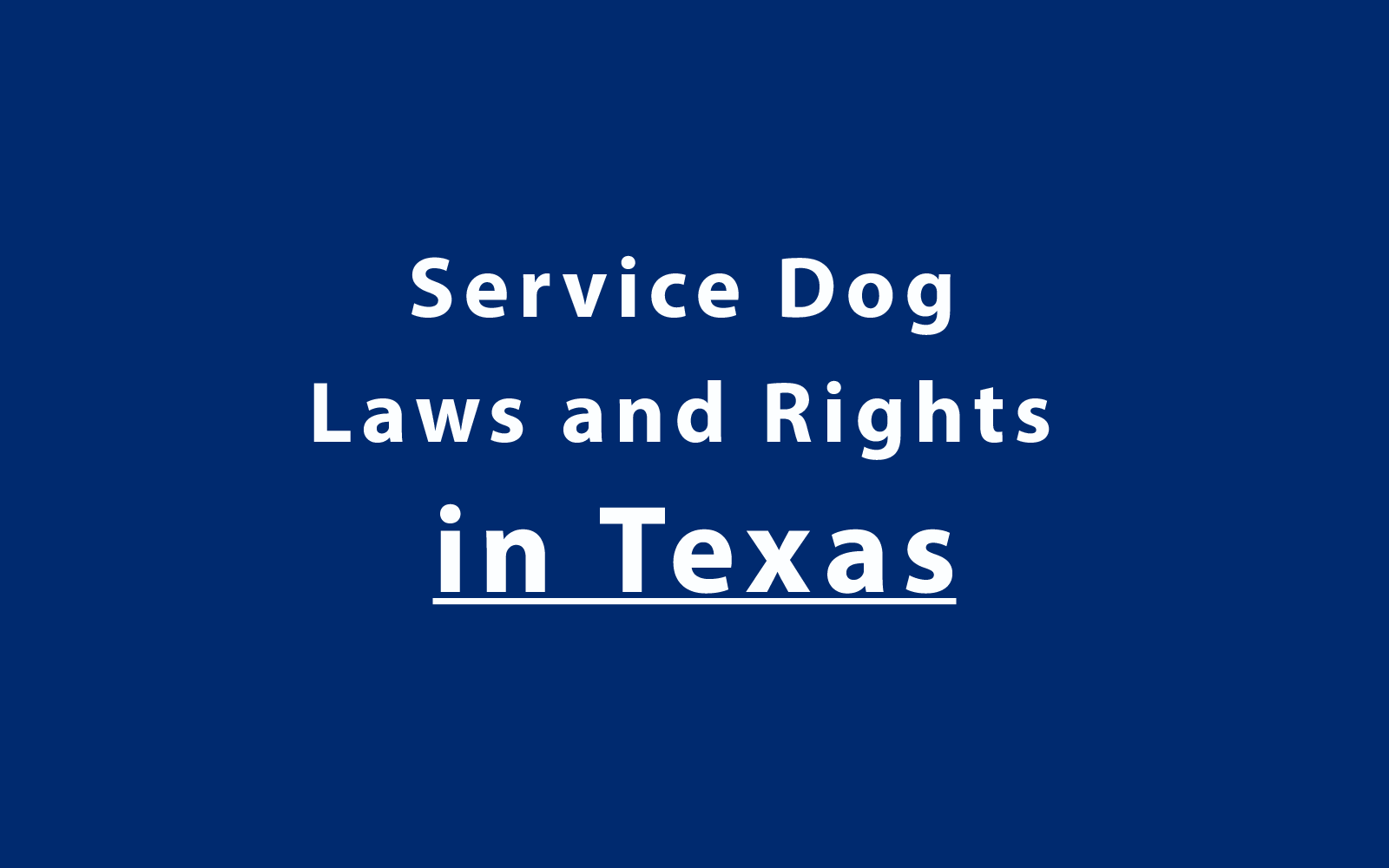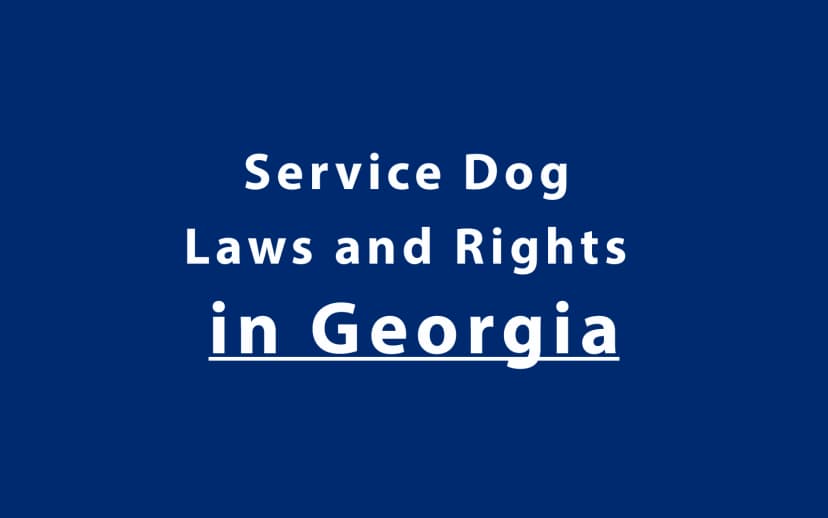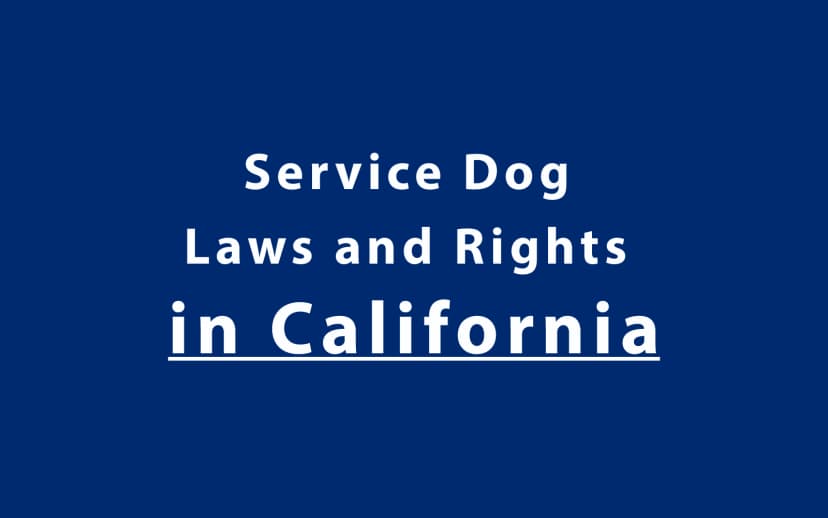Service Dog Laws and Rights in Texas

Service dogs are indispensable partners for individuals with disabilities, helping them live more independent, secure, and dignified lives. In Texas, service dog handlers are protected by both federal and state laws that affirm their right to bring trained service animals into public spaces, homes, workplaces, and educational settings. This guide provides a detailed look at service dog rights and responsibilities in Texas for 2025.
What Qualifies as a Service Dog in Texas
According to the Americans with Disabilities Act (ADA) and Texas law, a service animal is a dog that is individually trained to perform tasks that mitigate a person’s physical or mental disability.
Examples of tasks include:
• Guiding individuals with visual impairments
• Alerting to oncoming seizures or diabetic episodes
• Interrupting self-harming behaviors or panic attacks (psychiatric service dogs)
• Providing mobility support
Not recognized as service animals:
• Emotional Support Animals (ESAs)
• Therapy dogs
• Pets offering general comfort without task-specific training
Miniature horses can also be considered service animals under specific circumstances.
Public Access Rights in Texas
Both the ADA and Texas Human Resources Code, Chapter 121 ensure that service dog handlers can access most public accommodations.
Examples of public spaces include:
• Restaurants and cafes
• Malls and grocery stores
• Parks and recreational facilities
• Hospitals and clinics
• Public transportation and airports
Staff may only ask two questions:
1. Is this animal required due to a disability?
2. What task(s) has it been trained to perform?
They may not:
• Request medical records
• Demand documentation or ID
• Require the dog to demonstrate the task
Handlers must keep their dog under control, typically via leash or harness, and the animal must be housebroken and non-aggressive. Businesses may only exclude a service dog if it is disruptive, not housebroken, or poses a legitimate safety risk.
Housing Rights in Texas
The Fair Housing Act (FHA) provides broad protections for individuals with service dogs and ESAs in rental housing, even where pets are not normally allowed.
Key protections include:
• No-pet policies must allow service animals and ESAs
• No pet fees, deposits, or breed/weight restrictions may be imposed
• Documentation can only be requested if the disability and need are not obvious
Acceptable documentation:
• A brief letter from a healthcare provider affirming the disability and need for the animal
Complaints regarding housing discrimination can be filed with the U.S. Department of Housing and Urban Development (HUD).
Employment Rights in Texas
Title I of the ADA and Texas labor laws require employers to provide reasonable accommodations, including allowing a service dog in the workplace.
Steps for requesting an accommodation:
• Submit a written request to Human Resources
• Provide documentation if the disability is not readily apparent
• Engage in an interactive process to explore feasible accommodations
Employers may only deny a request if:
• It poses a direct threat or undue burden
• It interferes significantly with business operations
Workers who believe their rights were violated may file a complaint with the Equal Employment Opportunity Commission (EEOC) or Texas Workforce Commission Civil Rights Division.
Travel and Transportation Rights
Air Travel:
The Air Carrier Access Act (ACAA) allows trained service dogs to accompany their handlers in the cabin of aircraft, free of charge.
Requirements include:
• Completing the DOT Service Animal Transportation Form
• Dog must remain under control and fit in the handler’s foot space
Ground Transportation:
Under the ADA, service dogs are allowed on:
• Public buses and trains
• Taxis and shuttles
• Rideshare services (Uber, Lyft)
Denying access is a civil rights violation and can be reported to the U.S. Department of Transportation.
Service Dogs in Schools and Universities
K–12 Schools
Public schools must comply with the ADA and Section 504 of the Rehabilitation Act, allowing trained service dogs to accompany students.
Requirements:
• Schools cannot require documentation beyond the two ADA-compliant questions
• Schools may ask who will care for the dog if the student cannot
Colleges and Universities
Postsecondary institutions are required to admit service dogs in classrooms, dorms, cafeterias, and other facilities. Students should contact Disability Services to coordinate accommodations.
Training and Registration in Texas
Texas does not require official certification, licensing, or registration for service dogs.
Key facts:
• Handlers may self-train their service dogs
• Dogs must perform at least one task related to a disability
• Public behavior and task reliability are essential
Voluntary options include:
• Service dog ID cards and vests
• Online training and certification
These tools can help streamline public access, travel, and housing situations.
Misrepresentation and Legal Penalties
Falsely presenting a pet as a service animal in Texas is a punishable offense.
Texas Penal Code Sec. 42.091:
• Misrepresentation includes using vests, tags, or claims for untrained animals
• Penalties: fine up to $1,000 and up to 30 hours community service
Why it matters:
• Fraud undermines legitimate service dog teams and public trust
• Encourages stricter regulations and public skepticism
Violations can be reported to law enforcement or the Texas Workforce Commission.
State Resources and Support
• Texas Workforce Commission – Civil Rights Division
• Disability Rights Texas (disabilityrightstx.org)
• Texas Department of Licensing and Regulation
• ADA Coordinators in cities like Austin, Dallas, Houston, and San Antonio
• AssistanceDogPartners.org for voluntary registration, training, and certification support
Frequently Asked Questions (FAQs)
1. Is registration legally required in Texas?
No. Registration is optional and not required by law.
2. Are psychiatric service dogs covered?
Yes. As long as they are trained to perform tasks related to a mental health disability.
3. Can a landlord deny my service dog?
No, not if your request qualifies under the FHA. They also can’t charge pet fees.
4. Can I train my own service dog?
Yes. Owner-training is permitted in Texas and under ADA law.
5. What should I do if I’m denied access with my service dog?
You can file a complaint with the U.S. DOJ, HUD, or Texas Workforce Commission.
Conclusion
Texas service dog handlers are protected by strong legal frameworks that ensure access and fairness across housing, transportation, employment, and education. While certification isn’t legally required, good training and public behavior are crucial for service dog teams.
Stay empowered, know your rights, and consider using voluntary tools like PAT, ID kits, and professional training support from AssistanceDogPartners.org to help your service dog team thrive.



